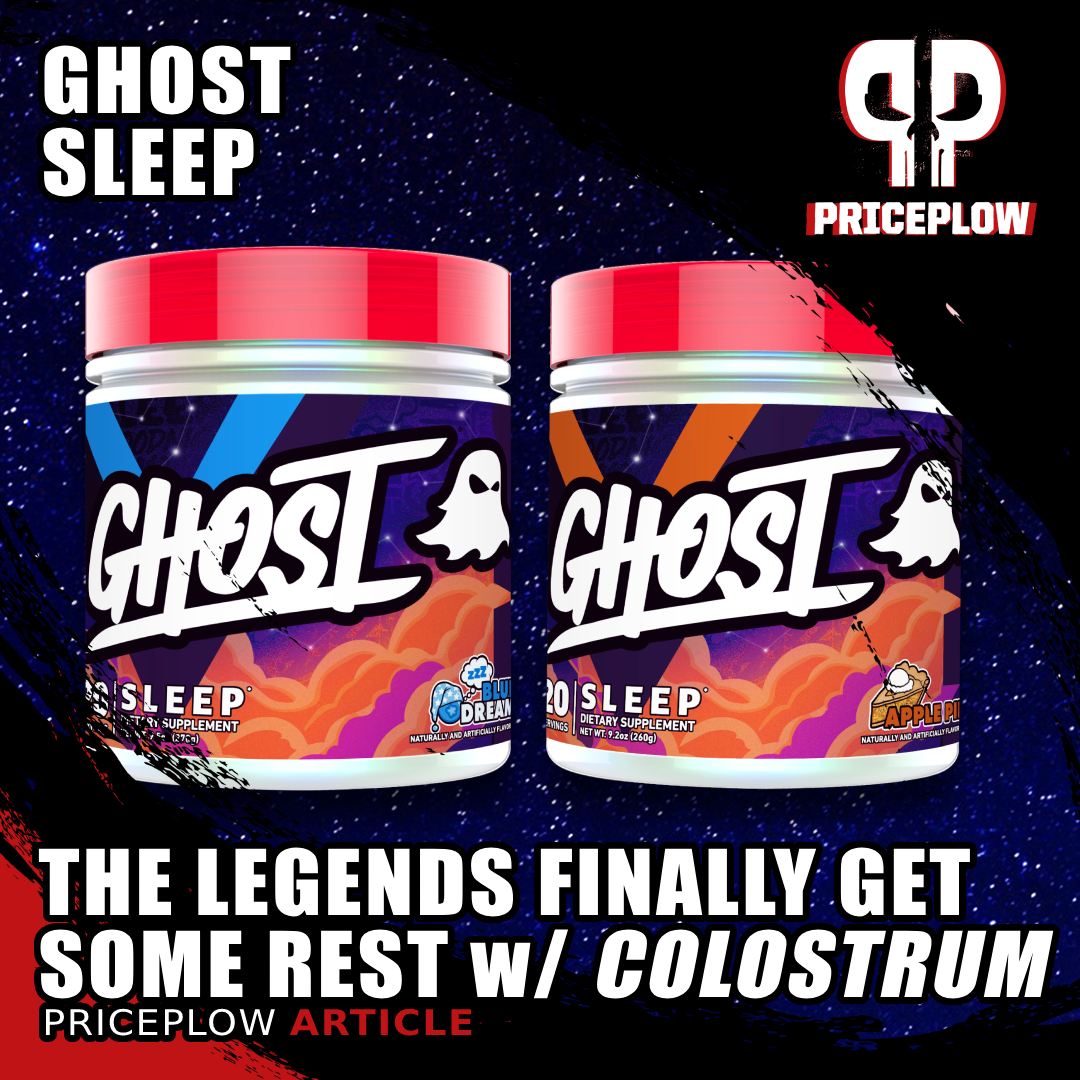
Ghost Sleep is here to help you unwind and get the restorative sleep you need. Featuring a powerful dose of colostrum and other scientifically-backed ingredients, this formula is designed to enhance sleep quality and overall well-being.
When you want to train, look, and feel your best, sleep is essential to recovery to get you there. Research states that the average adult who works out and wants to look their best should get 7-9 hours of sleep.[1]
However, about 28% of adults sleep less than 7 hours each night,[2] 40% report falling asleep in the daytime,[3] and 60% report mild, moderate, or severe sleepiness during the day.[4] There are all signs of sleep deprivation, sleep deficiency, or poor quality sleep, which can cause:
- Increases in circulating stress hormones[5]
- Decreases in the regeneration rate of carbohydrate stores[6]
- Deregulation of appetite and energy levels[7]
- Reduced anabolism and increased catabolism, which reduces muscle growth and repair[8]
Therefore, sleep is crucial to exercise recovery and overall well-being. That's why Ghost Lifestyle, who's been at the forefront of supplement industry innovation since 2016, knew that producing a top-notch sleep supplement with a research-based formula was necessary.
Ghost Sleep: A Long Time Coming!
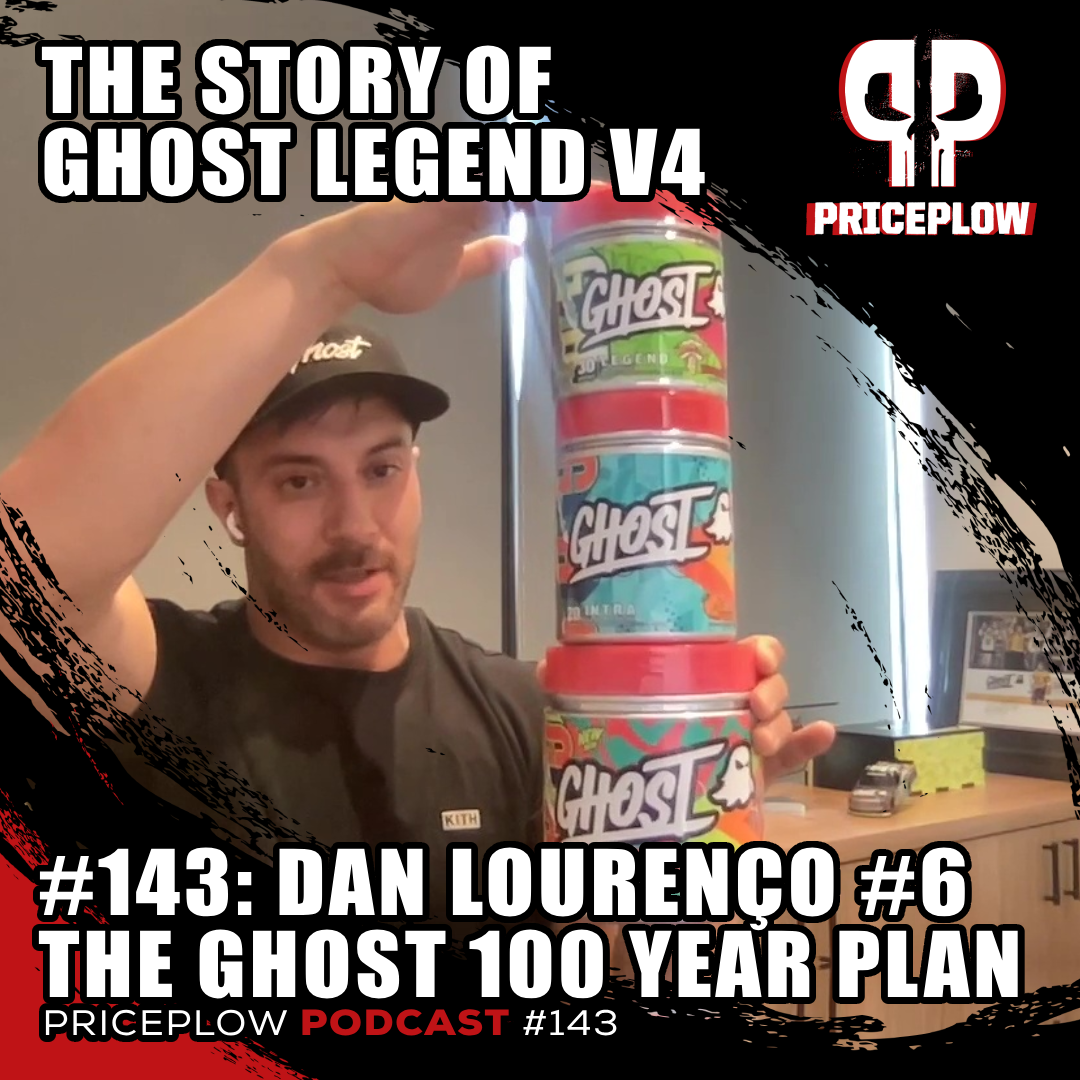
Dan Lourenço returns to the PricePlow Podcast for the sixth time to discuss the Legend V4 launch, the first half of 2024, and the Ghost 100 Year Plan in Episode 143
Ghost Sleep has been highly anticipated since its early mentions, especially after founder Dan Lourenço teased its release in Episode #143 of the PricePlow Podcast, but even before that he talked about it in Episode #116 as well. With the recent release of the Legend V4 pre-workout, which packs more caffeine than ever, it's only fitting that Ghost introduces a product to help you wind down and get the restorative sleep you need.
Colostrum in a sleep aid!
The highlight of this formula? A powerful dose of colostrum, among other scientifically-backed ingredients, is designed to enhance sleep quality. Stick around for a scientific ingredient-by-ingredient breakdown to see exactly how this powerful sleep supplement will help you optimize rest and recovery.
But first, sign up for notifications so you don't miss out on all things Ghost, sleep supplements, and the supplement industry. Plus, check out our video review and coupon-powered prices below.
GHOST Sleep – Deals and Price Drop Alerts
Get Price Alerts
No spam, no scams.
Disclosure: PricePlow relies on pricing from stores with which we have a business relationship. We work hard to keep pricing current, but you may find a better offer.
Posts are sponsored in part by the retailers and/or brands listed on this page.
This area is reserved for Team PricePlow's upcoming videos.
Subscribe to our channel and sign up for notifications so you catch it when it goes live!
Ghost Sleep Ingredients
Each 13-gram, 2-scoop serving of Ghost Sleep contains the following ingredients:
-
Colostrum - 3125 mg
Colostrum is often called "nature's first food" because it's the "first milk" produced by the mother a few days after giving birth. When infants are born, what they consume in those first few days of their lives must provide essential support and nutrients to sustain life outside the womb, potentially setting them up for lifelong health outcomes.
As you can imagine, this first milk is heavily nutrient-dense and has tons of health benefits. Yet newborns aren't the only ones who can benefit from colostrum. A significant amount of research shows that adults can also take and benefit from colostrum in supplements, and it can be from animals like cows as well as humans.
The Nutrients in Colostrum
Bovine colostrum contains many more nutrients than regular cow's milk. It has higher amounts of protein, carbs, fat, magnesium, and vitamins B, C, and E than standard milk.[9]
Along with essential macro and micronutrients, its most touted benefits come from specific protein compounds, such as:
- Antibodies: These are proteins known by the technical term immunoglobulins. High levels of these antibodies help boost your immune system's ability to fight viruses and bacteria. Colostrum is specifically rich in IgA, IgG, and IgM to provide these benefits.[10]
- Lactoferrin: A protein involved in your body's immune response that helps fight off infections caused by bacteria or viruses.[11]
- Growth factors: Colostrum contains proteins that stimulate growth, including muscle growth. Colostrum is specifically high in IGF-1 and IGF-2, which provide these benefits.[9]
Therefore, colostrum can help boost your immune system, fight infections, and even help with muscle growth and recovery.
Plus, research shows it can strengthen your gut and fight infections in the digestive tract. Both human and animal studies show it stimulates growth in the intestinal cells, strengthens the gut wall, and prevents intestinal permeability.[12] Intestinal permeability occurs in individuals who have conditions that cause their guts to let more water or nutrients through.
One study found that taking colostrum prevented 80% of intestinal permeability in athletes who suffered from it due to heavy exercise.[13]
How Colostrum Benefits Sleep
Overall, colostrum's benefits on the immune system, muscle growth, gut health, and nutrient absorption make it a great supplement to take before sleep to optimize recovery and well-being during a time when your body is focused on those specific functions. However, research also shows it can help you get better sleep.
Many have said that one of the keys to good sleep is actually through the gut. The gut-brain axis is a critical pathway that links the digestive system with the central nervous system, influencing mood, stress, and sleep.[14]
Colostrum's bioactive compounds, including lactoferrin and growth factors, reduce inflammation, maintain the integrity of the gut lining, and increase levels of beneficial bacteria in the gut.
Improving gut health can directly impact sleep quality. Inflammation and dysbiosis (imbalance of gut bacteria) are known to contribute to sleep disturbances and insomnia.[15] By supporting gut health, colostrum helps create an internal environment conducive to better sleep.
Studies have indicated that individuals who supplement with colostrum experience fewer gastrointestinal issues and report improved sleep quality.[16]
One study even analyzed the impact of colostrum supplementation on mental health and sleep quality in patients who suffered an acetabular fracture (break in the ball and socket hip joint). With a painful fracture like that, sleeping and relaxing is harder. The study showed that the colostrum group had a 58% lower risk of sleep disorder two weeks after surgery and a 54% lower risk of developing an anxiety disorder after 60 days.[17]
Standardized for 1250 mg Immunoglobulin G (IgG)
Additionally, the colostrum in Ghost Sleep contains 1,250 mg of immunoglobulin G (IgG), one of the key antibodies mentioned above.
IgG helps fight infections and protects the immune system. One study found that patients struggling with insomnia typically had immunological abnormalities, including lower levels of IgG, that caused a higher rate of clinical infections.[18]
Therefore, a supplement containing IgG can help boost your immune system and well-being in the short term as you work on improving sleep quality and keeping your body balanced and healthy in the long term.
-
L-Glycine - 3000 mg
Next, Ghost Sleep contains a powerful 3,000 mg dose of L-glycine, which is a clinically effective dose for regulating sleep, stress, and cognitive function.[19-21]
Glycine's primary mechanism of action is acting as a GABAergic neurotransmitter in the brain. This has an inhibitory effect on neurons, which slows down your brain's chemical messaging system and the overall central nervous system.[22]
The overall slowing effect of glycine is why it's known as a mild depressant rather than a stimulant. Since it slows things down, it helps your body relax and reach a place of restfulness for good quality sleep.
Additionally, glycine's effects lower the body's core temperature, a crucial factor in initiating and maintaining sleep. It does this by acting on NMDA receptors in the brain, which regulate circadian rhythms and sleep-wake cycles. This effect promotes vasodilation (the widening of blood vessels) and heat loss, helping the body reach the optimal temperature for sleep.[23]
Sleep Studies with Glycine
There are several studies that back up glycine's positive effects on sleep. One trial from 2006 had participants take glycine before bed. When they woke up, they reported better quality sleep and more energy than the placebo group.[19]
Another study in 2007 had participants take 3 grams of glycine or placebo before bed. Tests on the participant's sleep quality showed they fell asleep faster and reported better sleep satisfaction than the placebo group. Plus, it even improved their memory scores on cognitive tests the next day for a bonus.[20]
Lastly, a follow-up study in 2012 had similar results, showing less daytime sleepiness and fatigue from participants with glycine. Plus, they performed better on memory and math tests the following day.[21]
-
GABA (Gamma-Aminobutyric Acid) - 1000 mg
Gamma-aminobutyric acid (GABA) is the brain's primary inhibitory neurotransmitter. It helps reduce neuronal excitability and promotes relaxation.[24]
When you take a GABA supplement, it binds to the brain's GABA receptors, causing this effect to occur. Therefore, taking it before you sleep can prime your body and mind for a well-timed state of calmness.
In some ways, it has similar effects as glycine, slowing the mind and body down to ease the transition from wakefulness to sleep. Therefore, these compounds work well together to prime you for excellent rest, showing that Ghost did their research on this one.
Additionally, studies have even shown that GABA supplementation increases alpha brain waves, which promote a state of relaxation and calmness. GABA also reduces beta brain waves, which are linked to anxiety and stress, to promote more relaxation.[25,26]
Lastly, research has shown that GABA may help with rest and repair for athletes who train hard. Studies show that GABA reduces the pain response and leads to better performance under stress.[27,28] Plus, it's shown to upregulate growth hormone (GH) by as much as 400%.[29]
GH release is triggered by sleep, which plays into GABA's sleep-regulating effects. Therefore, you can take it to help you fall asleep and optimize recovery from intense training during sleep.[30-32]
-
KSM-66 Ashwagandha (Withania somnifera) Root extract - 600 mg
Ashwagandha, particularly the KSM-66 extract in Ghost Sleep, is one of the most researched adaptogenic herbs known for its ability to help the body manage stress. Not to mention its extensive history of use in traditional folk medicine systems around the world.
The 600 milligram dose of KSM-66 is a clinically effective amount that has been shown to reduce stress and anxiety, improve sleep quality, and enhance overall well-being.[33]
Ashwagandha is called an adaptogen because it helps regulate biological processes. One of the primary effects that causes it to enhance sleep is it can regulate cortisol levels. When your cortisol levels are too high, it raises stress and makes it harder to fall asleep and maintain good quality sleep.
Research shows that ashwagandha modulates the hypothalamic-pituitary axis (HPA), the hormone pathway responsible for producing stress and adrenal hormones. When ashwagandha regulates this pathway, it helps reduce cortisol and stress in people with elevated levels and can even boost testosterone in men.[34]
Furthermore, insomnia is heavily linked to high cortisol levels,[35] so supplementing with ashwagandha, which several studies support as a stress-relieving herb, is a terrific idea if you're having trouble falling or staying asleep.[36-38]
That said, for those who use many Ghost Supplement products in their daily routine, keep in mind that Ghost Intra already contains 600 milligrams of ashwagandha. If you combine these two products, it's quite a bit of ashwagandha in a day, which could lead to a bit of drowsiness if it's a bit much for you. So, consider that as you're deciding which supplements to stack together.
-
Zylaria - 500 mg
Zylaria, derived from the Xylaria nigripes mushroom, is a relatively new but promising ingredient in the realm of sleep aids.
This mushroom has been used in traditional Chinese medicine for centuries to treat insomnia and other sleep disorders. Modern research has also shown that it can improve overall sleep quality.
Studies have shown that Xylaria supplementation can significantly increase the duration of slow-wave sleep, also known as deep sleep, which is the most restorative sleep stage.[39] Slow-wave sleep is essential for physical recovery, memory consolidation, and the release of growth hormones, making it a crucial component of overall health and well-being.
Additionally, a study published in 1991 on mice found that mice treated with Xylaria had higher concentrations of GABA.[40] As discussed earlier, we know GABA is great for sleep. Plus, this effect combines nicely with the GABA in the Ghost Sleep formula.
For even more evidence, a 2010 study on humans found that 57.5% of participants who took Xylaria for a month saw improved scores on the Pittsburgh Sleep Quality Index (PSQI) questionnaire, which measures how long it takes to fall asleep and how well someone sleeps.[41]
To round things out, a meta-analysis in 2022 with 1,850 participants found that those who supplemented with Xylaria had consistently improved PSQI scores as well compared to placebos.[42]
-
L-Tryptophan - 500 mg
L-tryptophan is an essential amino acid that is a precursor to serotonin and melatonin.
While tryptophan is found abundantly in meat, if we don't get enough of it, we also don't generate enough 5-HTP (5-Hydroxytryptophan), which gets converted into serotonin.[43,44]
Serotonin is a neurotransmitter that plays a vital role in regulating moods, cardiovascular health, sexual health, and digestion.[45,46] It's essential to keeping us feeling good in our daily lives. Your brain also needs serotonin to make melatonin, which regulates the sleep-wake cycle.
Tryptophan is a precursor to serotonin, which can be transformed into melatonin, which regulates sleep cycles.
Melatonin is produced in the pineal gland and released in response to darkness, telling the body it's time to sleep. That's why many people take melatonin supplements to help them fall asleep (and why melatonin is also included in Ghost Sleep). However, there's potential to get even more benefits if you supplement with tryptophan as well.
A lot of research was done on tryptophan and sleep between the 1960s and 1970s. A meta-analysis of 40 studies during those decades found that it had the most significant benefits on people with mild insomnia or who took slightly longer to fall asleep.[47]
Athletes who train with a higher intensity can have difficulty falling asleep at night.[1] Intense training can disrupt the circadian rhythm and raise the body temperature to a point that counteracts the normal nighttime drop in temperature needed to fall asleep, especially if you train closer to bedtime.[48]
Therefore, an ingredient like tryptophan can be very useful in a sleep supplement formula like this for athletes who might take a little longer than average to fall asleep. Plus, many other ingredients in the Ghost Sleep formula also help with this, such as glycine, which helps lower your body's core temperature for sleep, and melatonin, which affects your circadian rhythm.
Tryptophan supplementation can also be really impactful if you eat a diet that doesn't include as much meat, which is the main source of dietary tryptophan.
-
SerinAid Phosphatidylserine (PS) (Delivering 200 mg phosphatidylserine) - 400 mg
Phosphatidylserine (PS) is a phospholipid that is a key component of cell membranes, particularly in the brain. It plays a crucial role in cell-to-cell communication, cognitive function, and stress response.
PS is a good sleep aid addition because it's shown to help reduce cortisol levels.[49] As we've discussed, regulating cortisol is essential to promoting relaxation and good sleep quality.
Additionally, as mentioned in the section above, athletes can have difficulty falling asleep after intense exercise. Another reason for that could be the fact that cortisol production increases in response to exercise.[50]
Many athletes have taken PS to blunt cortisol rises because doing so actually improves performance.[51] However, in terms of sleep, blunting that rise in cortisol could also help you enter a restful state after training.
While there aren't many studies just yet focused on PS supplementation and sleep, early research is promising that using it to reduce cortisol has positive effects that help you fall asleep faster and sleep better.[52]
-
Full Yield Melatonin - 3 mg
When most people think of melatonin, they usually know about its ability to help you fall asleep. However, it's actually fundamental in managing your circadian rhythm since it tells you when it's time to sleep and when it's time to wake up.[53] Think of it like your body's internal clock signal.
Due to these effects, many people take melatonin supplements when they're trying to improve their sleep schedule or adjust to a new sleep schedule.
For instance, consider someone who's been staying up until 3 AM and then waking up at 11 AM for years on end. If they suddenly get a new job where they need to get up for work bright and early at 7 AM, that's a big adjustment, and it can take several nights of low sleep to start getting into those new habits.
However, studies show that taking a supplement like melatonin can ease that transition and help you adjust your sleep and wake schedule accordingly. That's especially true if you're trying to transition to a more traditional sleep schedule, getting up closer to when the sun rises and going to bed a couple of hours after it gets dark outside.[54]
Additionally, studies have shown that melatonin supplementation can help with sleep disturbances, such as insomnia or migraines, that make it hard to fall asleep or stay asleep.[55,56]
Sign up for alerts on our Ghost news page so you don't miss any news!
Melatonin can also help with your response to blue light. Our natural sleep schedules are coordinated by the amount of light around us, so as it gets darker, we start to feel sleepier.
However, in today's world, where phones, TVs, and computers are so integral to our lives, the artificial blue light from those screens decreases the activity of the melatonin-producing enzyme.[57] It causes our brains and bodies to think that there's still lots of light around us.
One way to combat this is to simply stop looking at your phone or watching TV earlier in the evening. You could also do things like dimming the lights in your house for an even greater impact.
That said if you work late or have other circumstances where this isn't possible, supplemental melatonin before bedtime is also proven to help with this and put your body in a natural restful state when you take it before bed.[58]
-
Magnesium (as Trimagnesium Citrate) - 200 mg (48% DV)
Lastly, we don't want to forget about the 200 mg dose of magnesium at the top of the Ghost Sleep label. While we don't always think about this essential mineral in terms of sleep, it can greatly benefit sleep quality.
Research has shown that magnesium plays a key role in the production of GABA, the primary inhibitory neurotransmitter in the brain.[59] GABA helps calm the nervous system and promote relaxation, making it easier to fall asleep and stay asleep throughout the night.
Magnesium also helps regulate the body's stress response by reducing the release of cortisol, further promoting a state of relaxation.[60]
Ghost Sleep is here to help you unwind and get the restorative sleep you need. Featuring a powerful dose of colostrum and other scientifically-backed ingredients, this formula is designed to enhance sleep quality and overall well-being.
Magnesium is particularly important for individuals who experience muscle tension, cramps, or restless leg syndrome, as it helps relax muscles and reduce discomfort.[61] By promoting muscle relaxation, magnesium creates an internal environment conducive to sleep, reducing the likelihood of sleep disturbances caused by physical discomfort.
In addition to its effects on muscle relaxation, magnesium is known for improving sleep quality in individuals with insomnia. Studies have shown that magnesium supplementation can reduce sleep onset latency, increase sleep duration, and improve overall sleep efficiency.[62]
Plus, an increasing amount of Americans are magnesium deficient. The recommended daily magnesium intake is 400-420 mg for men and 310-320 mg for women.[63] However, the average American man only consumes 352 mg of magnesium, and the average American woman only consumes 256 mg in their daily diet.[64]
Magnesium deficiency can lead to a whole host of problems like chronic stress, anxiety disorders, and blood sugar dysregulation that can impact sleep and your overall well-being.[60,65,66] That's why the 200 mg dose in Ghost Sleep is a terrific addition to round out a balanced, research-backed formula.
Flavors Available
Below is a list of the flavors of Ghost Sleep currently available:
Dan Lourenço mentioned in episode #143 of the PricePlow Podcast that Ghost will stick to natural colors from now on. It's great to know that no unnecessary dyes are sneaking their way into this supplement formula.
Conclusion: A Colostrum-Enhanced Sleep Aid Worth Waiting For
After thoroughly reviewing the ingredient list, we can undoubtedly say Ghost did their research on this one to maintain their consistently high quality standards. There were delays due to Dan's choice of colostrum, but we're thinking it was worth getting right.
With the addition of colostrum to the formula and its many benefits on overall well-being and preparing the central nervous system to wind down for sleep, it looks like Ghost is set to innovate once again.
While many sleep aids haven't added colostrum before, we think it'll be a real game changer that helps you feel well-rested and ready to perform at your best in the gym.
In the quest for good sleep, we encourage you to try Ghost Sleep and see what it can do for you.
That said, remember that Ghost Sleep is just a supplement and not a complete solution to all your problems. It's still important to adopt other healthy habits, like staying active, eating a balanced diet, and practicing good sleep hygiene, to get the most out of your sleep and fitness goals.
With the right daily habits and supplements that enhance your efforts further, you'll be primed and ready for success!
GHOST Sleep – Deals and Price Drop Alerts
Get Price Alerts
No spam, no scams.
Disclosure: PricePlow relies on pricing from stores with which we have a business relationship. We work hard to keep pricing current, but you may find a better offer.
Posts are sponsored in part by the retailers and/or brands listed on this page.
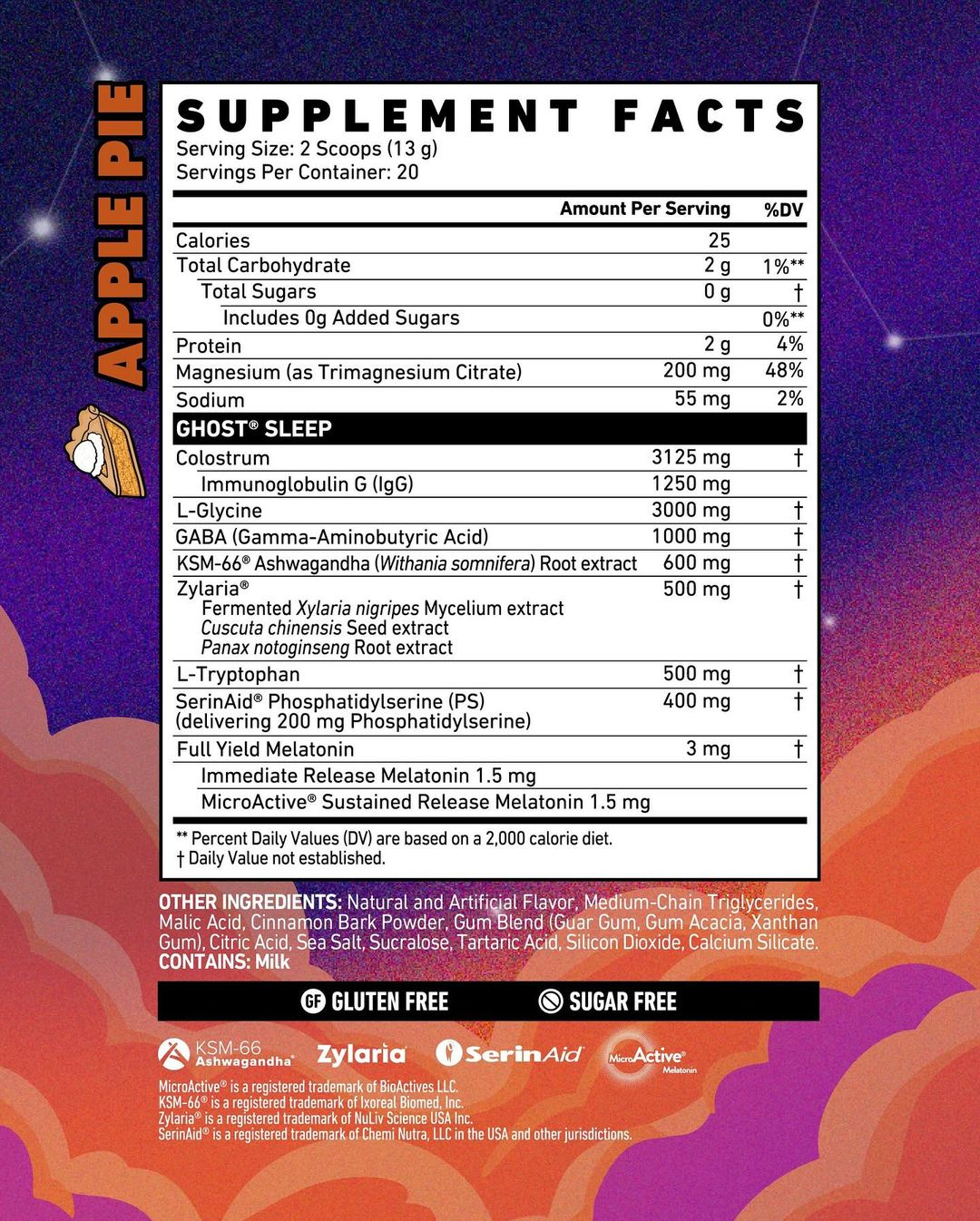
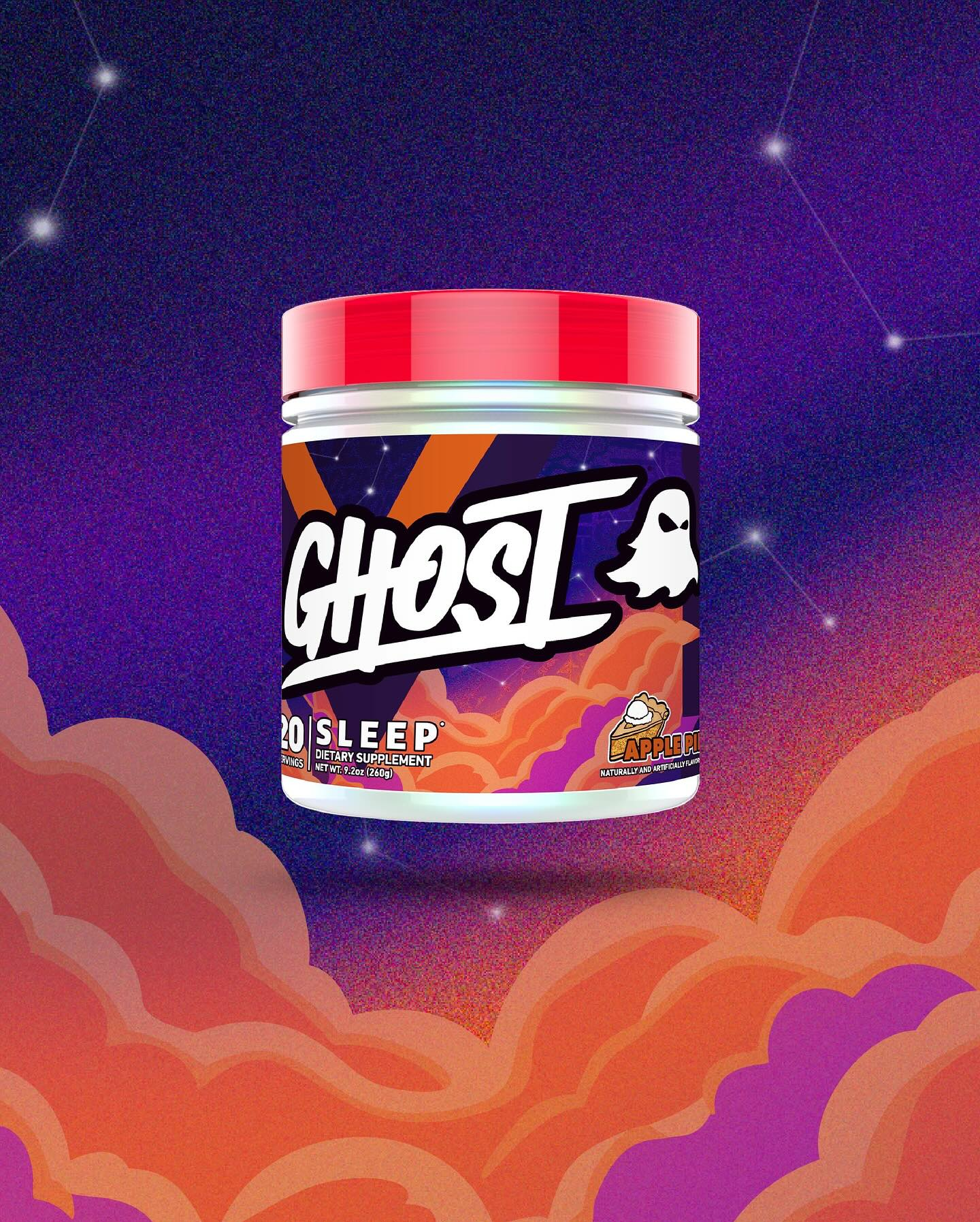
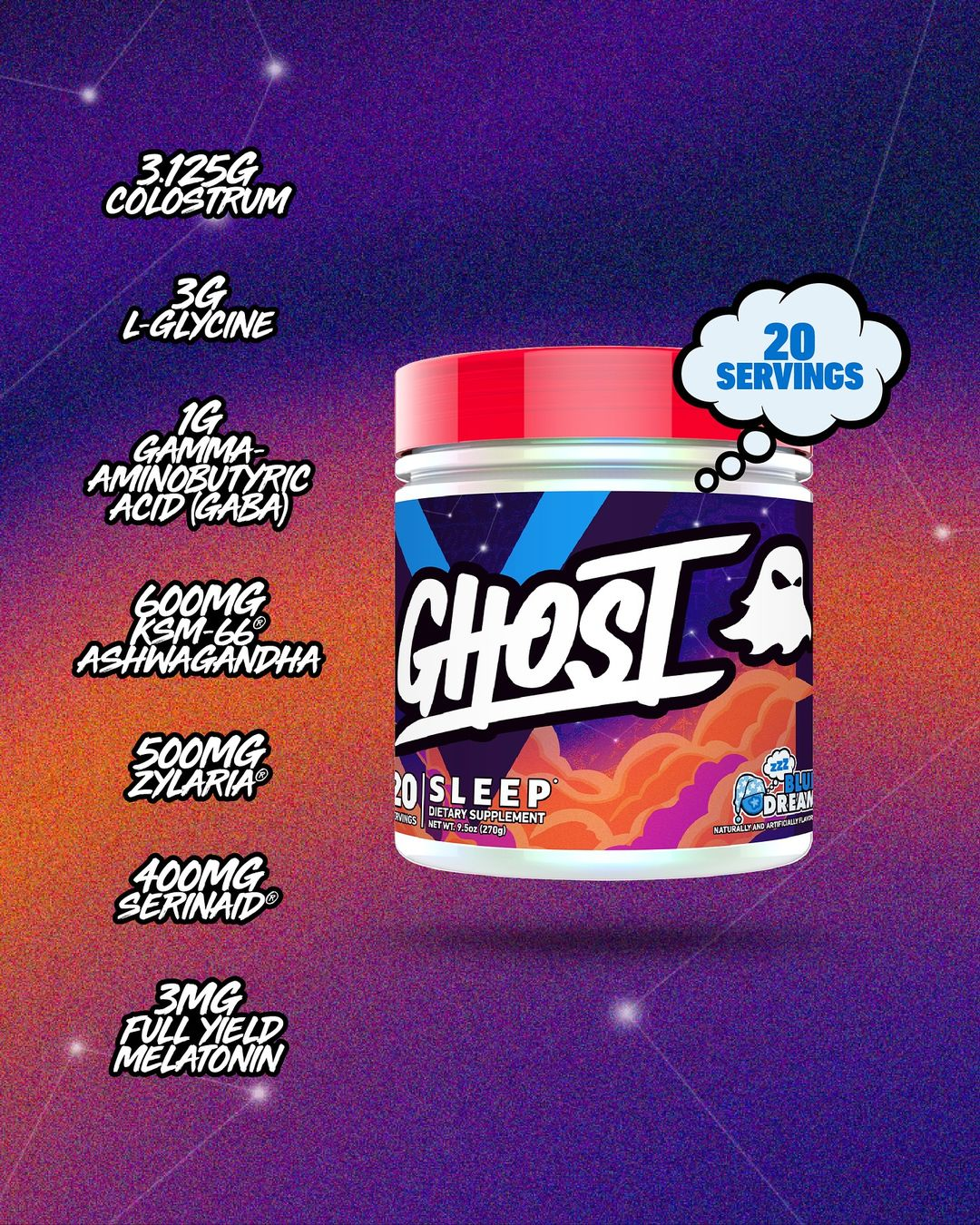
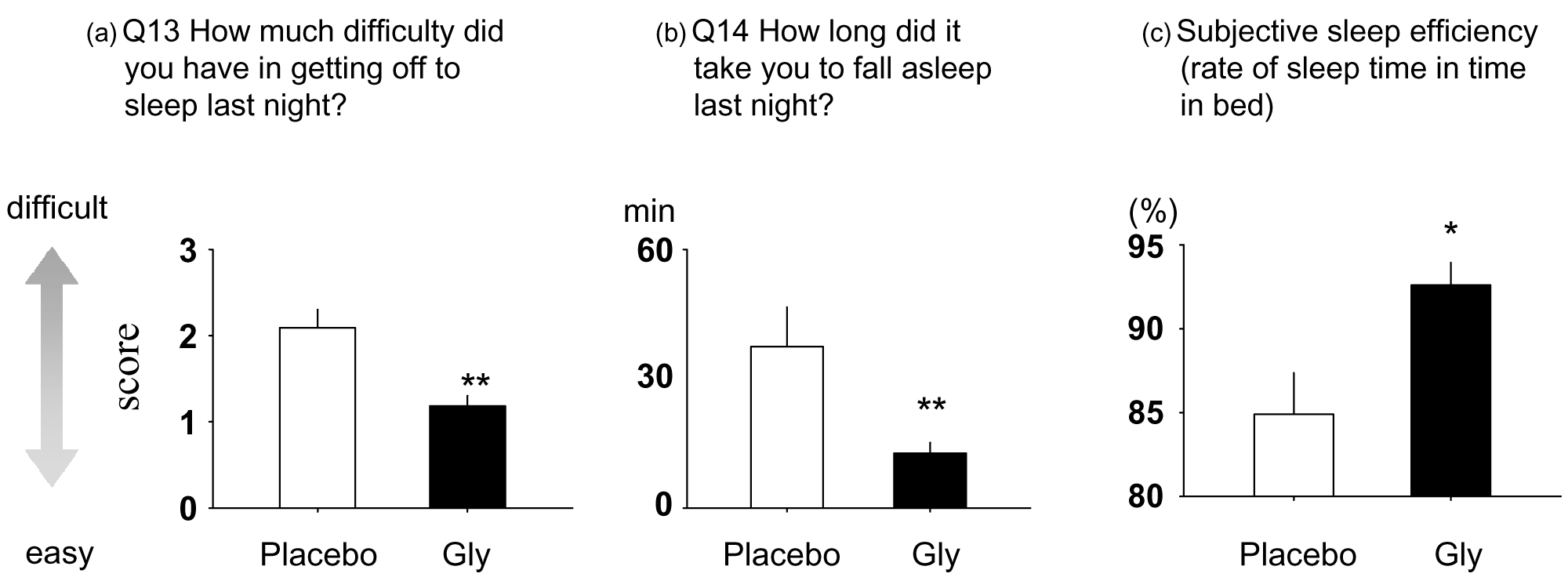
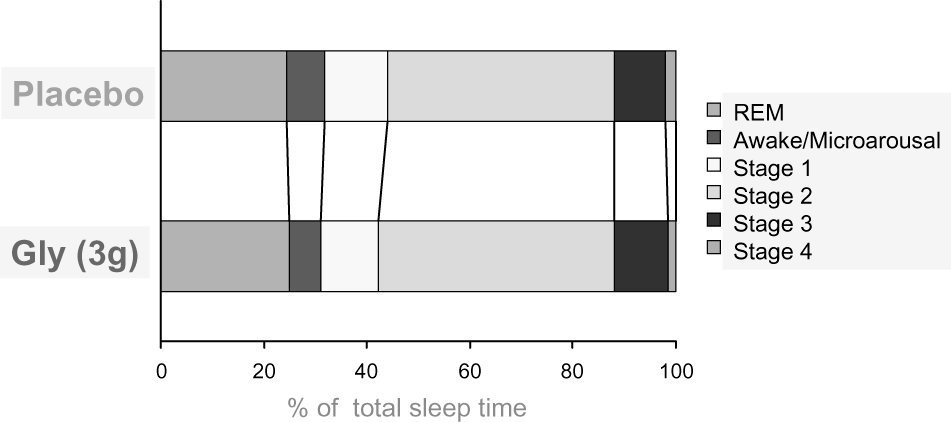
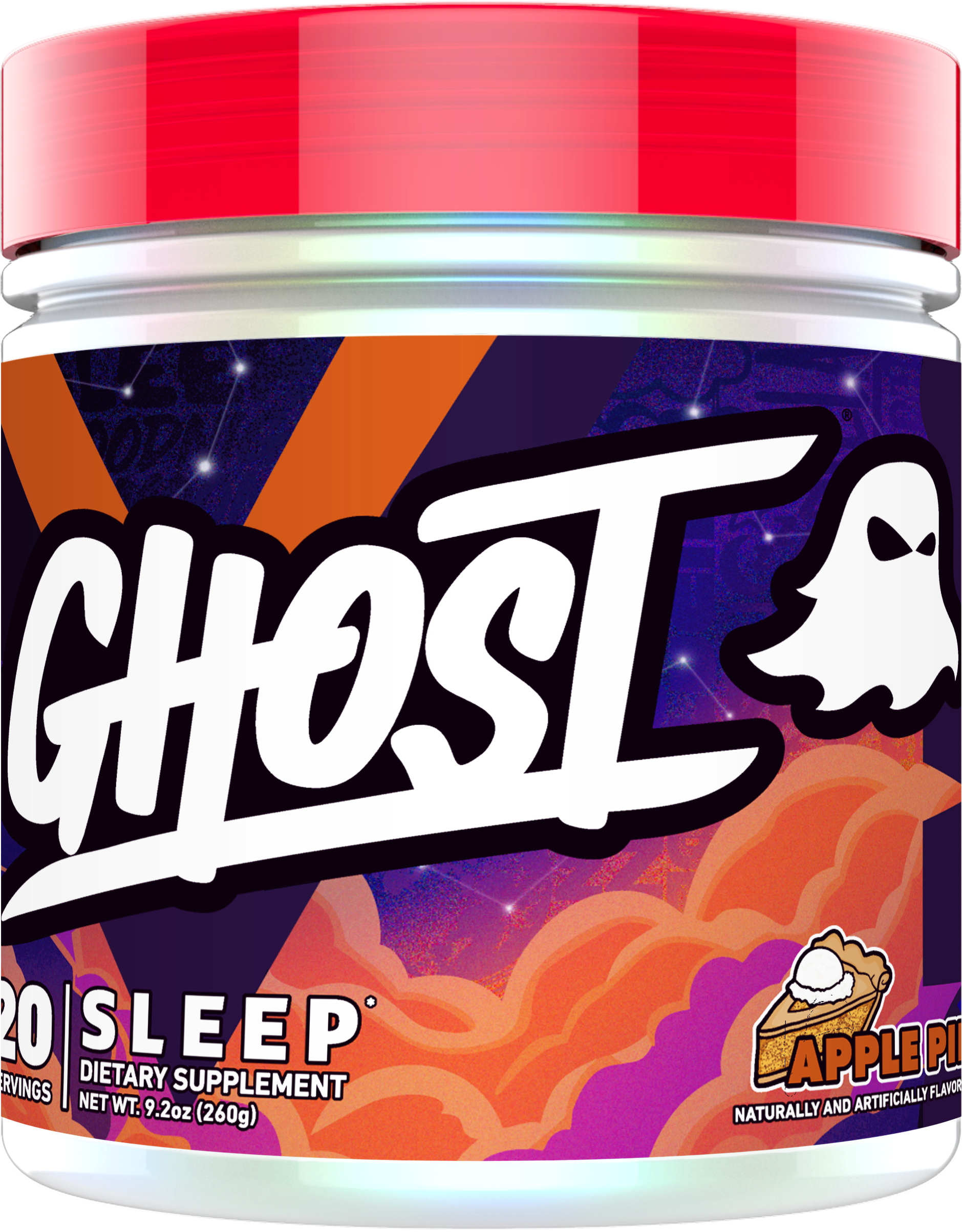


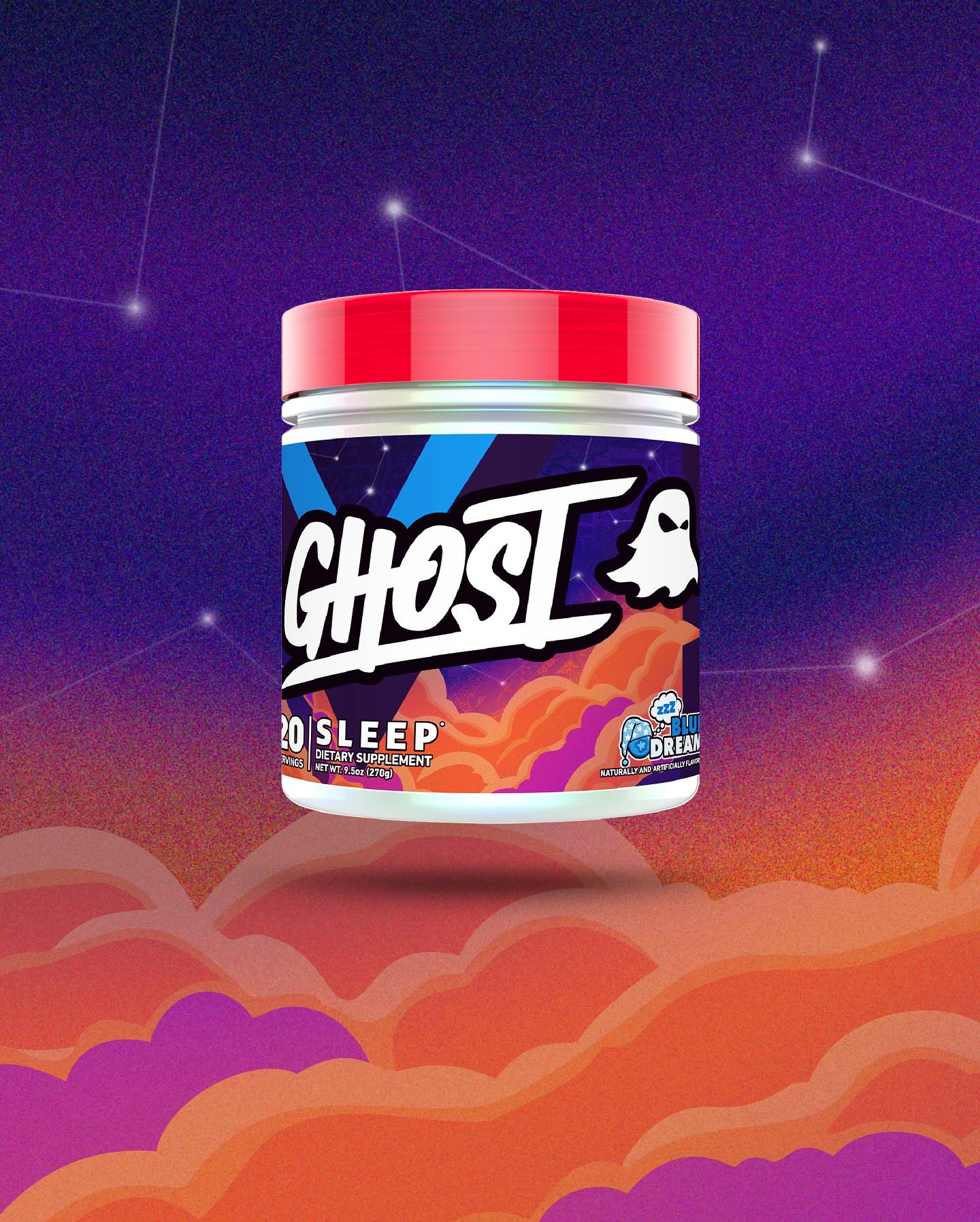

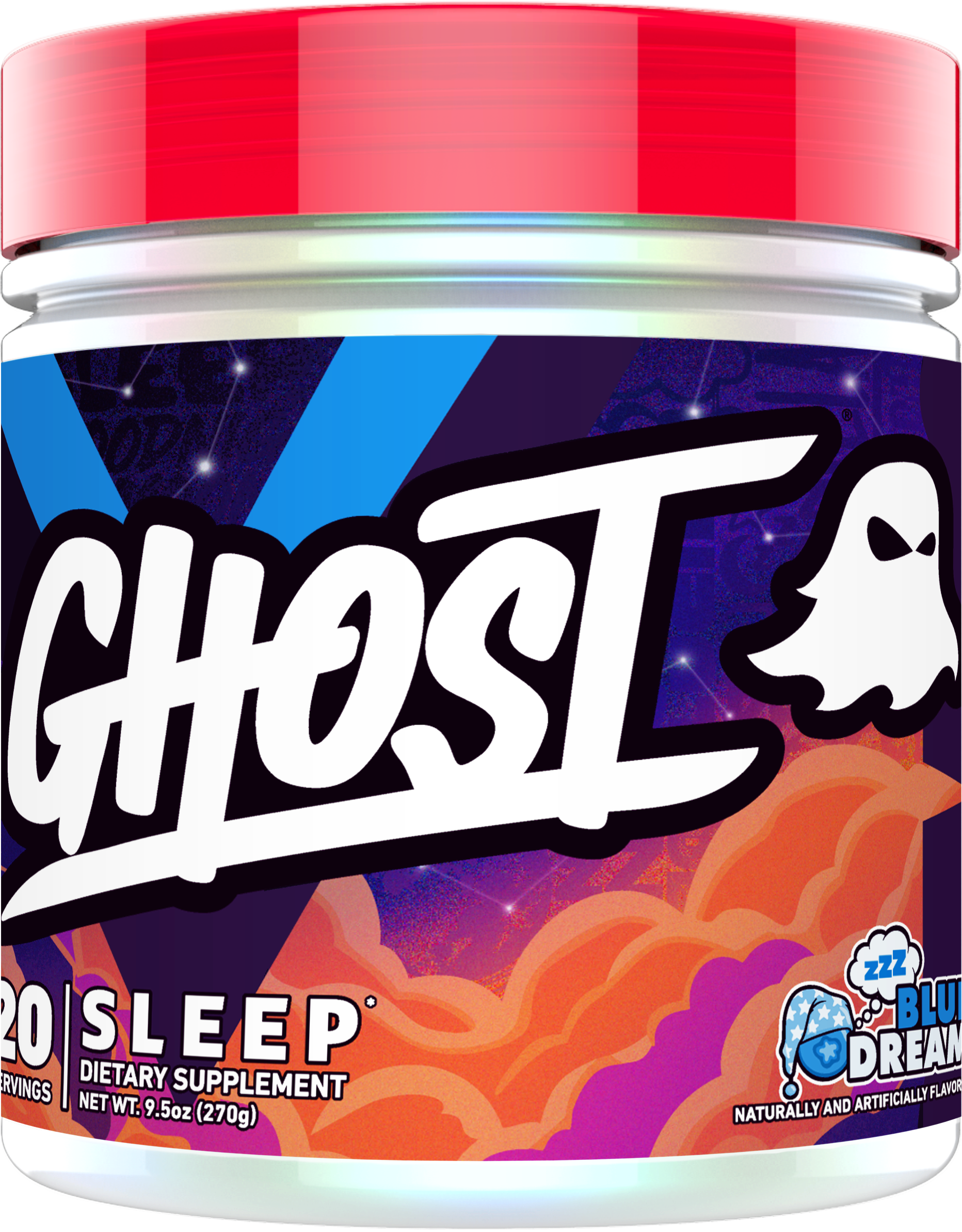

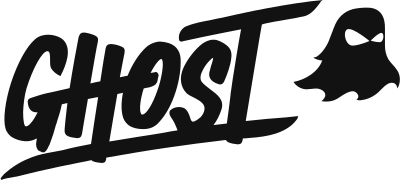
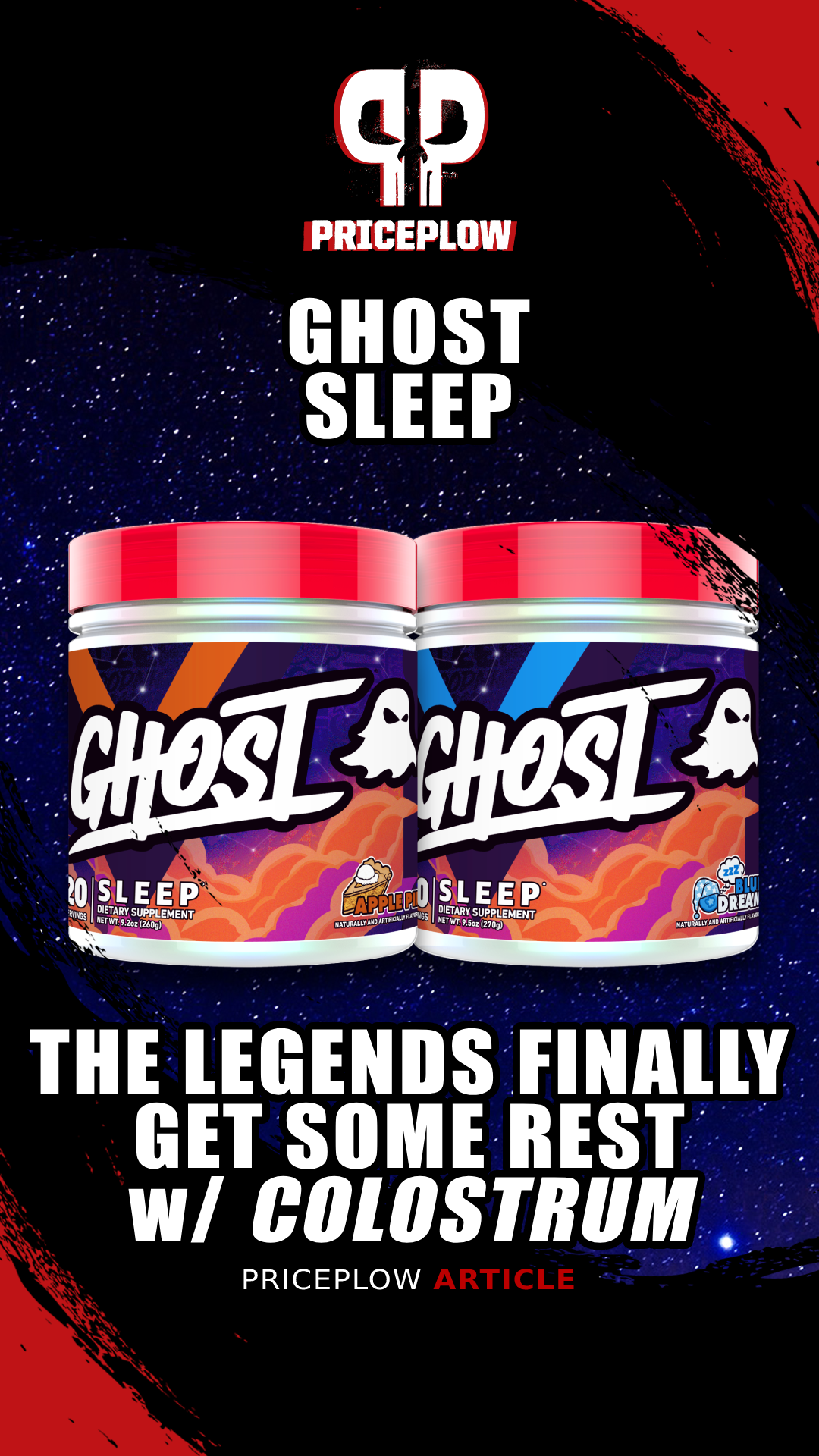
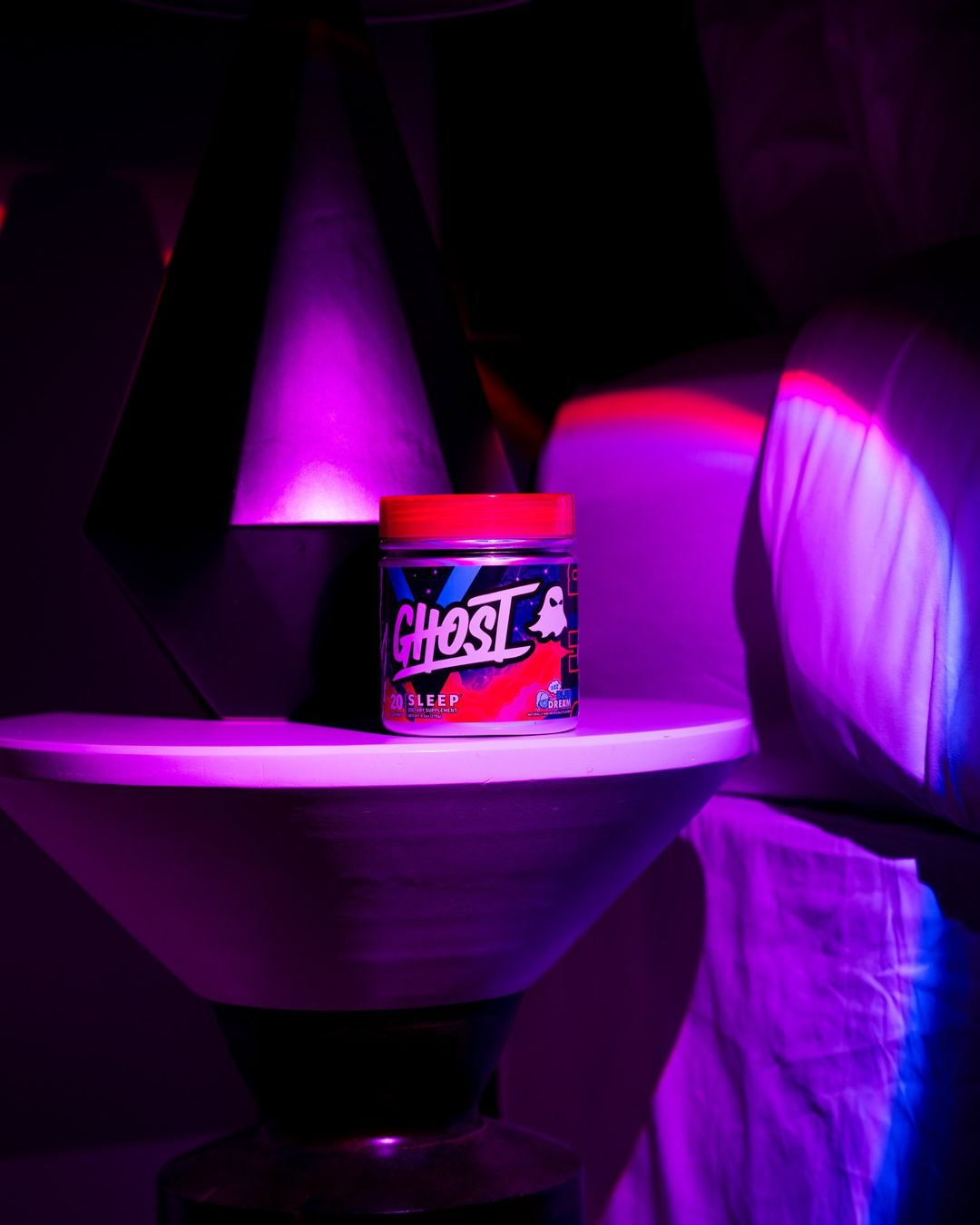


Comments and Discussion (Powered by the PricePlow Forum)